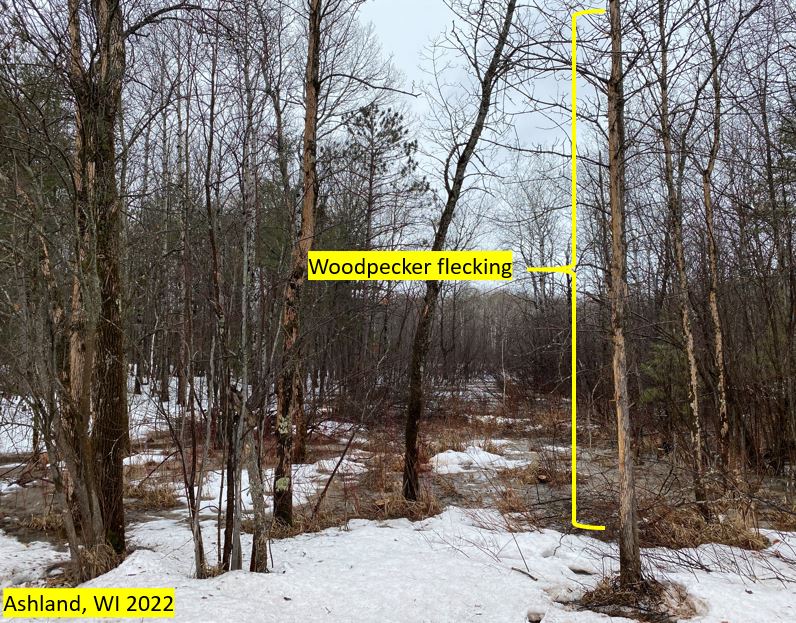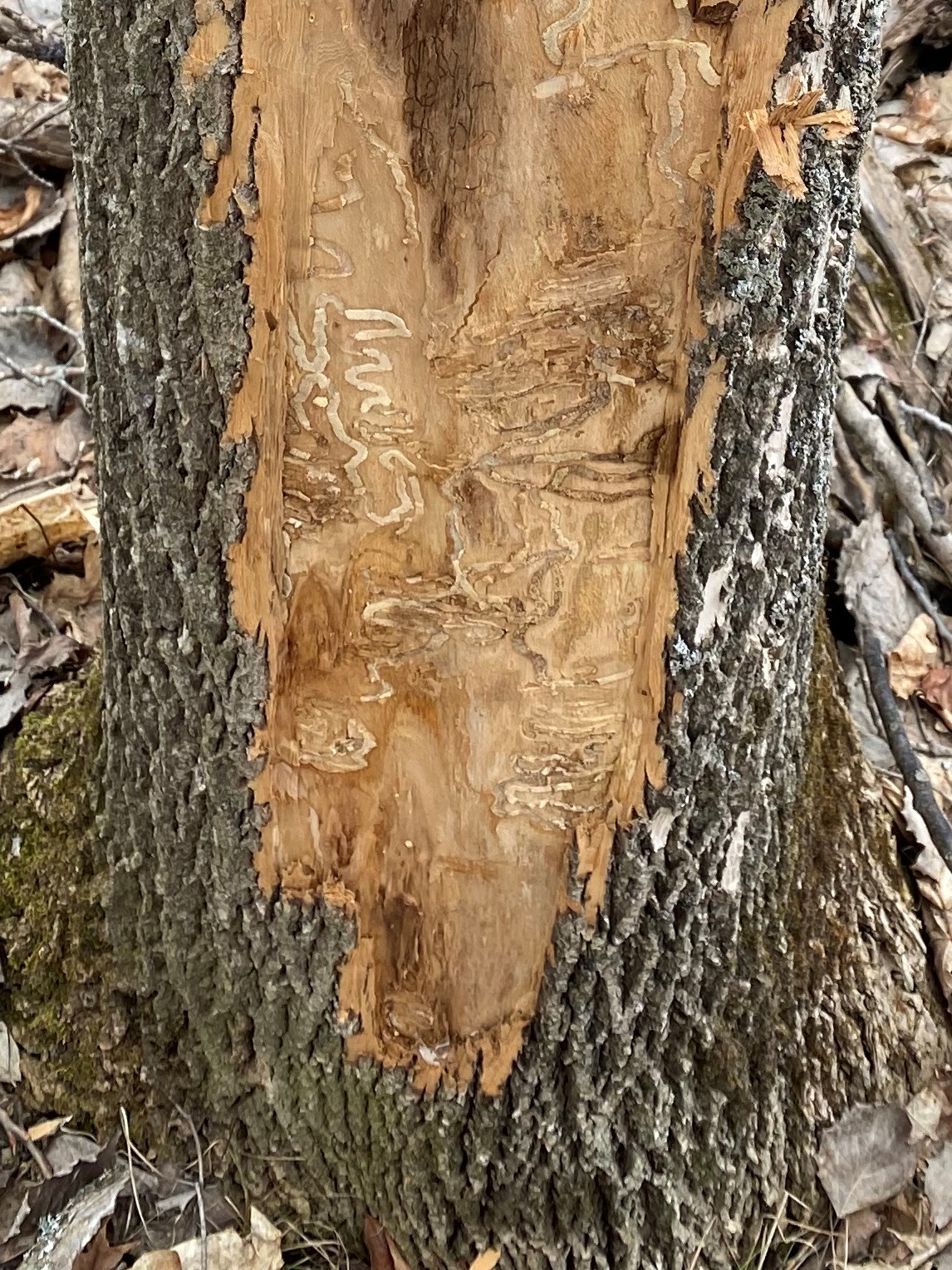By Linda Williams, DNR Forest Health Specialist, Woodruff, Linda.Williams@wisconsin.gov, 920-360-0665 & Paul Cigan, DNR Forest Health Specialist, Hayward, Paul.Cigan@wisconsin.gov, 715-416-4920
Emerald ash borer (EAB) has been detected for the first time in Forest County in the Town of Armstrong Creek and Ashland County in the City of Ashland. The Forest County detection was most likely a natural expansion of other infestations in Florence and Marinette counties.
The Ashland County detections appear to be isolated infestations likely spread through the transportation of firewood or logs. Several large green ash stands in the City of Ashland show advanced infestation signs.
EAB was first found in Wisconsin in 2008. There are now just seven counties where EAB has not yet been identified. EAB was federally deregulated as of January 2021. In 2018, Wisconsin instituted a state-wide quarantine. This discovery in Forest and Ashland counties will result in no regulatory changes.
Please visit the interactive Wisconsin EAB detections map to see where EAB has been reported. Follow the map’s instructions if you know of an infested area not on the map.
Not sure what to look for? Often times, woodpeckers will flake off the outer layers of bark to get at the larvae underneath. Look for these trees to help you determine where infestations may exist.
Landowners across the state should not wait until EAB is killing local trees to start making management decisions. All forest sites are different, and it can be overwhelming to try to decide what should be done in your stand. Emerald ash borer silviculture guidelines were created to help landowners make these choices. If you have questions or want additional information, please contact your local forester.

Woodpeckers remove the outer layers of bark to make it easier to feed on the larvae under the bark. Photo: Wisconsin DNR

